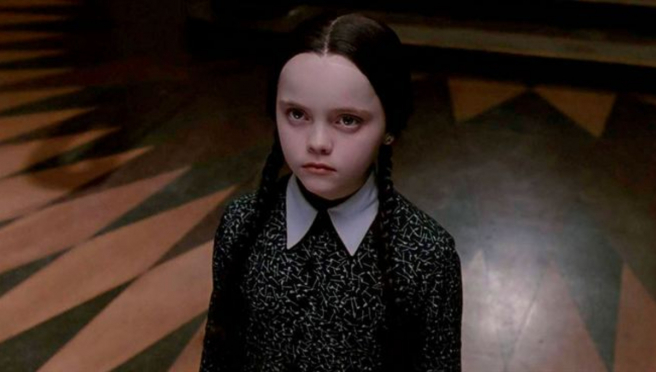I'm sure if I mention "Addams", the first thing that springs to mind is that gothic and dark family we've often seen on TV. If you're here, you're likely to have seen or are interested in the series "Wednesday". Usually, I'm VERY skeptical about series that are based on things I love, but in this case, it surprised me. And for the better. Of course, Tim Burton had a hand in production and directed some episodes as well, so nothing less could be expected. Tim Burton is amazing (in my humble opinion).
In this post, I want to talk about the evolution of characters, using Wednesday Addams, the go-to gothic girl with whom many of us have identified, as an example.
Characters are the heart of every story; through their eyes, we see the world into which we are immersing ourselves, and they are the ones who tell us their story. It's crucial that these characters come off as believable because we're going to spend considerable time with them and if we don't buy into them, it's likely we might stop reading. A well-crafted character can make all the difference.
Types of Characters
Generally, we have two types of characters, flat and round.
Flat characters are simpler figures in terms of character development. They tend to be predictable and one-dimensional; this doesn't mean they're bad or boring, they simply serve a specific function in the plot and seldom stray from their predetermined path. We might consider these characters to represent a fixed idea or a dominant personality trait. They're a highly valuable tool you can use, so please, let's not underestimate them.
On the other hand, round characters are multi-dimensional and complex, undergoing significant changes throughout the plot, they're more human, more real. Their character and actions evolve in response to the experiences and conflicts they encounter. That development, whatever it may be, always has to be justified within the context of the story. Just like us, a character won't change just for the sake of it. Behind it is a process, a journey, and experiences that led to it. Change is the outcome of lived experience.
When you allow your characters to evolve, you permit yourself to delve into deeper themes and that allows readers to identify with them and challenges them to think, it stirs something within them. That's always a good thing.
By the way, here's the video in case you're interested in watching it:
Let's do a dissection of Wednesday's character from the Netflix series, from top to bottom. But before we go further, I must say that I'm not a psychologist, but I enjoy doing these kinds of exercises because I think as writers, it's interesting and very helpful for character construction.
The Wednesday of the old movies and TV series was a flat character. Her dark and mysterious behavior remained constant, almost emotionless, except for her iconic smirk of disdain. Though, in her defense, that didn't stop us from falling for her and her macabre style. There wasn't any substantial growth or notable changes in her character.

In the series, things change. It's a different style and in this case, they've taken the liberty to humanize her more, developing her personality and character, but without losing her essence. That's sublime to me.
They show us a more human, more realistic, and tormented Wednesday. Although she initially shows a lack of empathy and tends to manipulate people to get what she wants, that changes as the plot progresses. We see that while empathy is still lacking, she's capable of reasoning and understanding that her actions cause harm to others. The girl who didn't care about the people around her and didn't value the friendship offered to her comes to appreciate the embrace of her friend and breaks away from her loneliness. Despite her changes, Wednesday in the end remains at heart that same macabre, quiet, and antisocial girl, but with a slight difference.
That's the magic of character evolution. A character will evolve, yes. But logically. You can't make a character like her turn out to be super extroverted, open, smiling, and loving to everyone by the end of the series. Not because it's not possible, but because it doesn't add up. Therefore, her evolution follows a natural course to that point.
In the end, it's up to you and your story. With these kinds of characters, you'll get your readers to identify with them, you'll make your story interesting, and prevent it from being predictable. You'll add emotion and they'll get more involved in it because they'll want to know what will happen.
Your characters, through the internal and external conflicts they experience, will grow and evolve. You can use that evolution to explore different issues like identity, maturity, love, loss, and overcoming. Universal and relevant themes for life that, no matter how familiar they are, always hit close to home and make us reflect.
So, if you're looking to improve the evolution and development of your characters, stay tuned for more posts on this topic. Until then, I hope this exploration of Wednesday Addams' evolution has inspired you and helped you better understand how to handle character evolution in your writing.
Until next time!



0 Comments